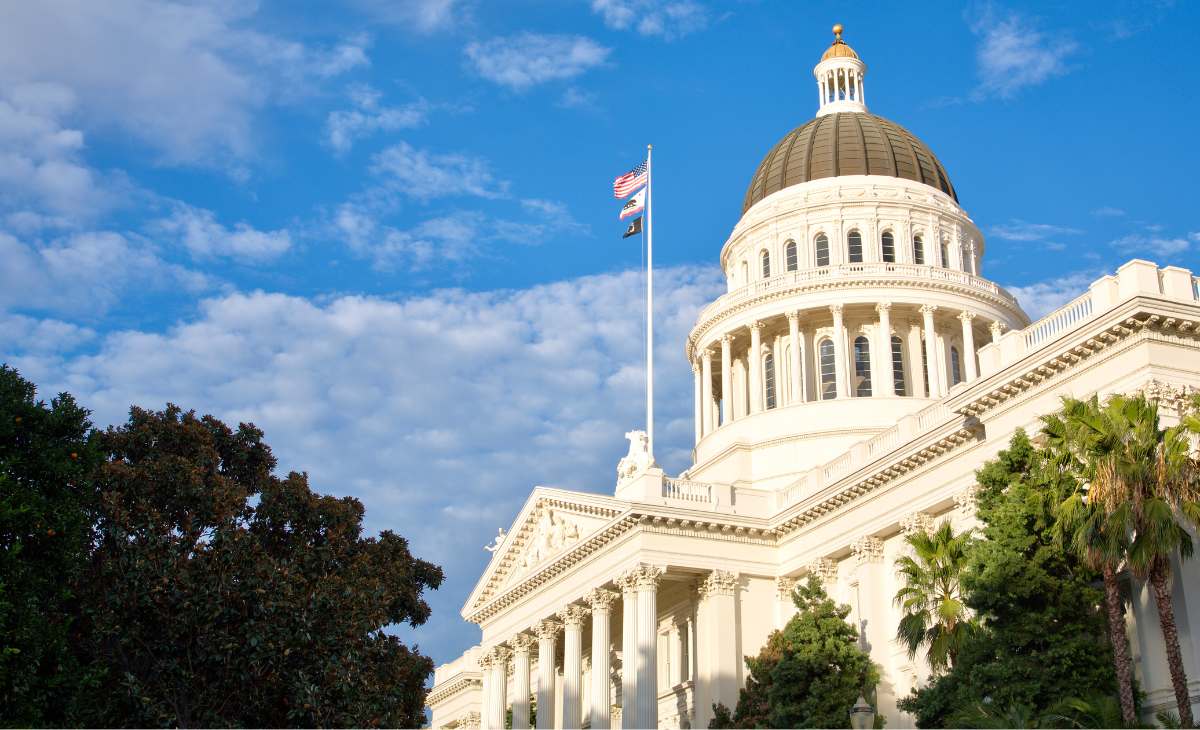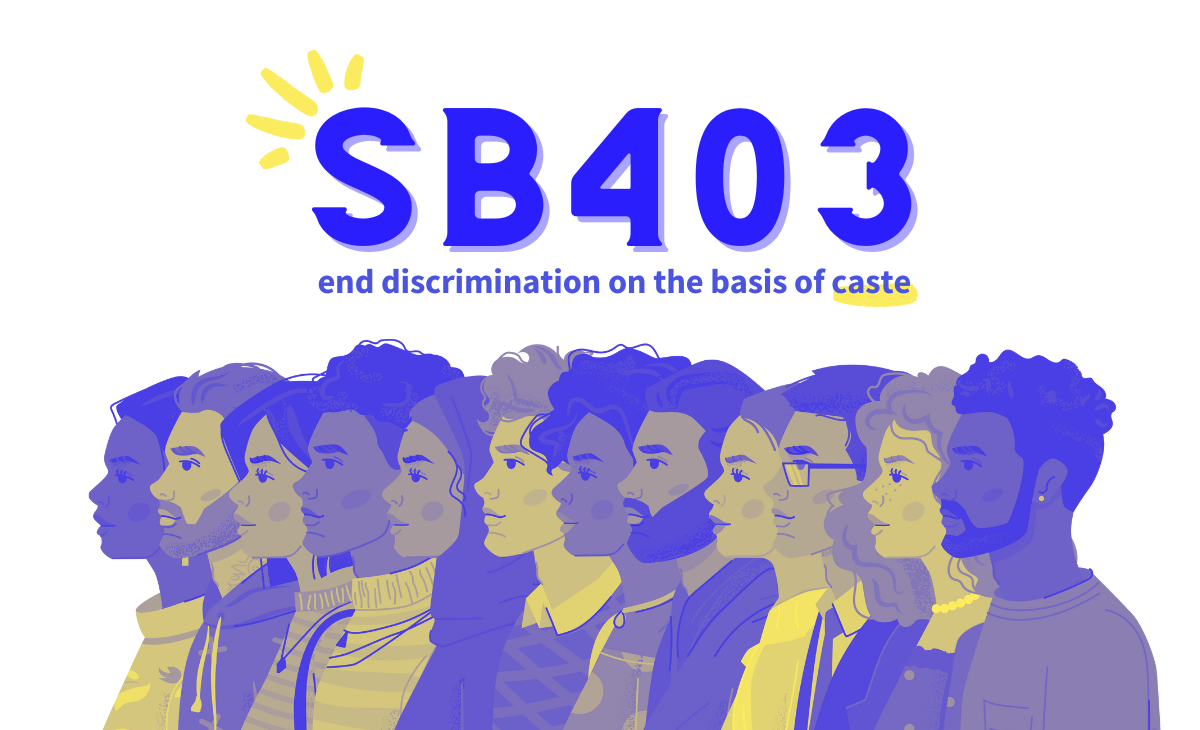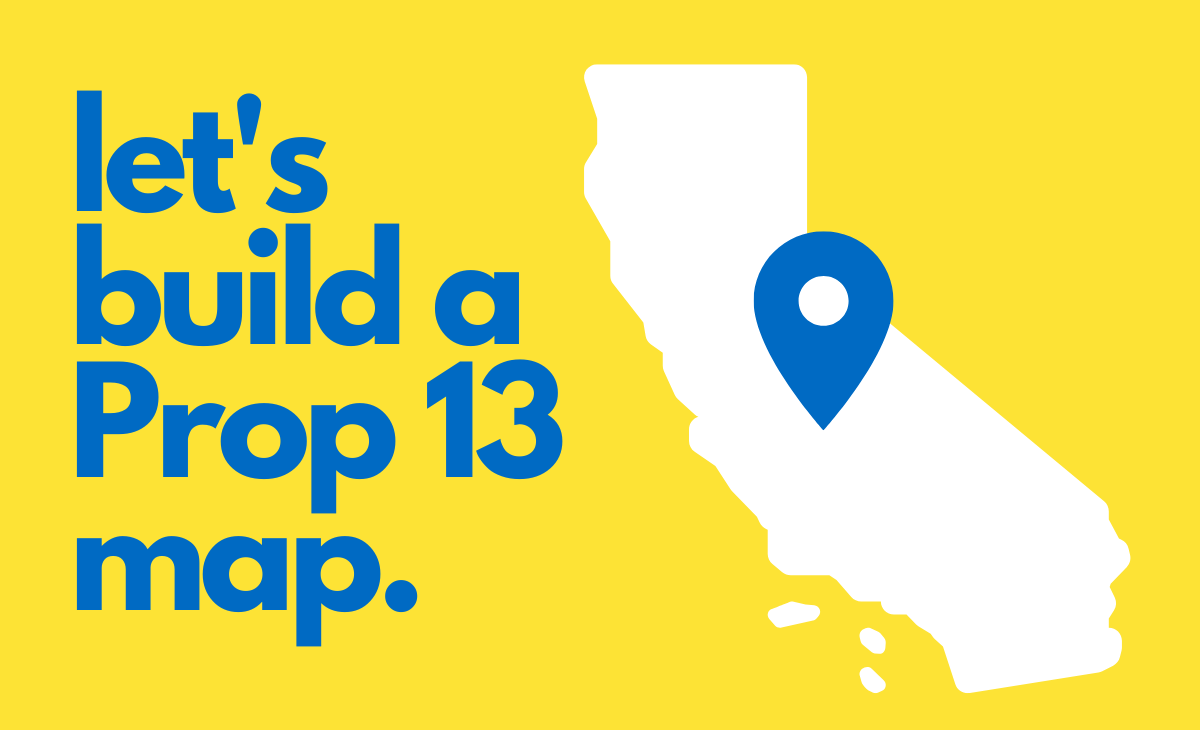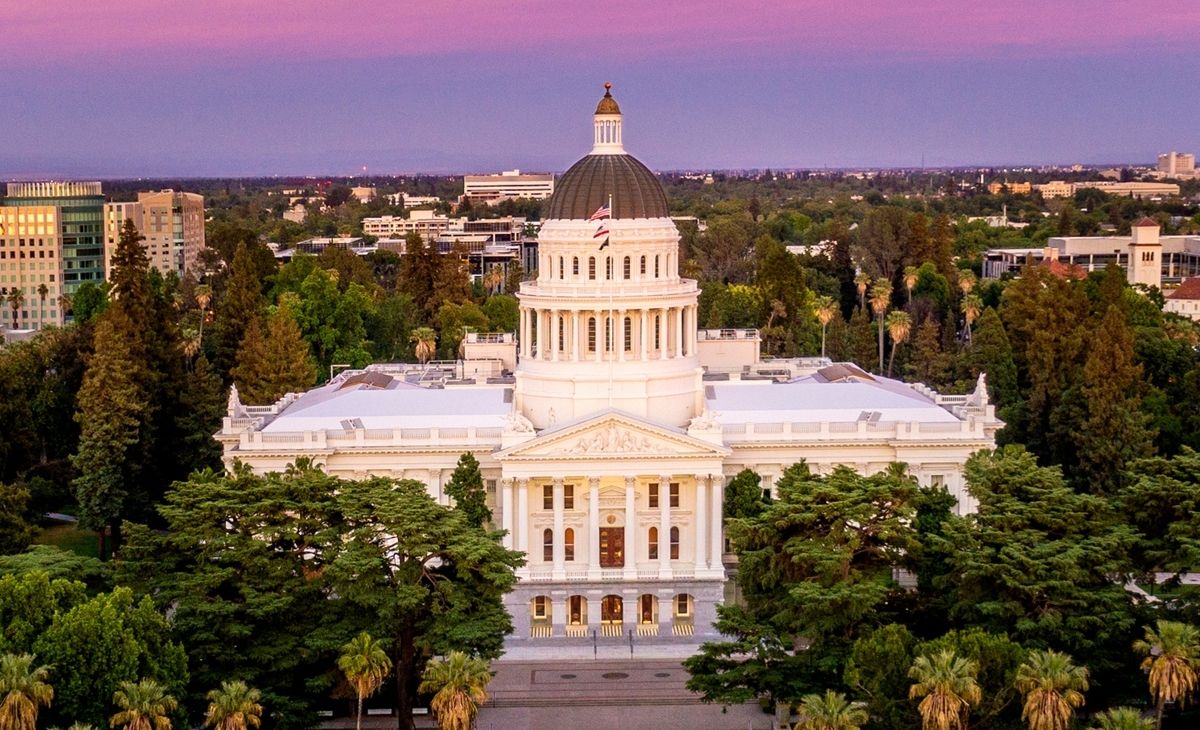Bills, Bills, Bills (Can You Pass My Bills?)
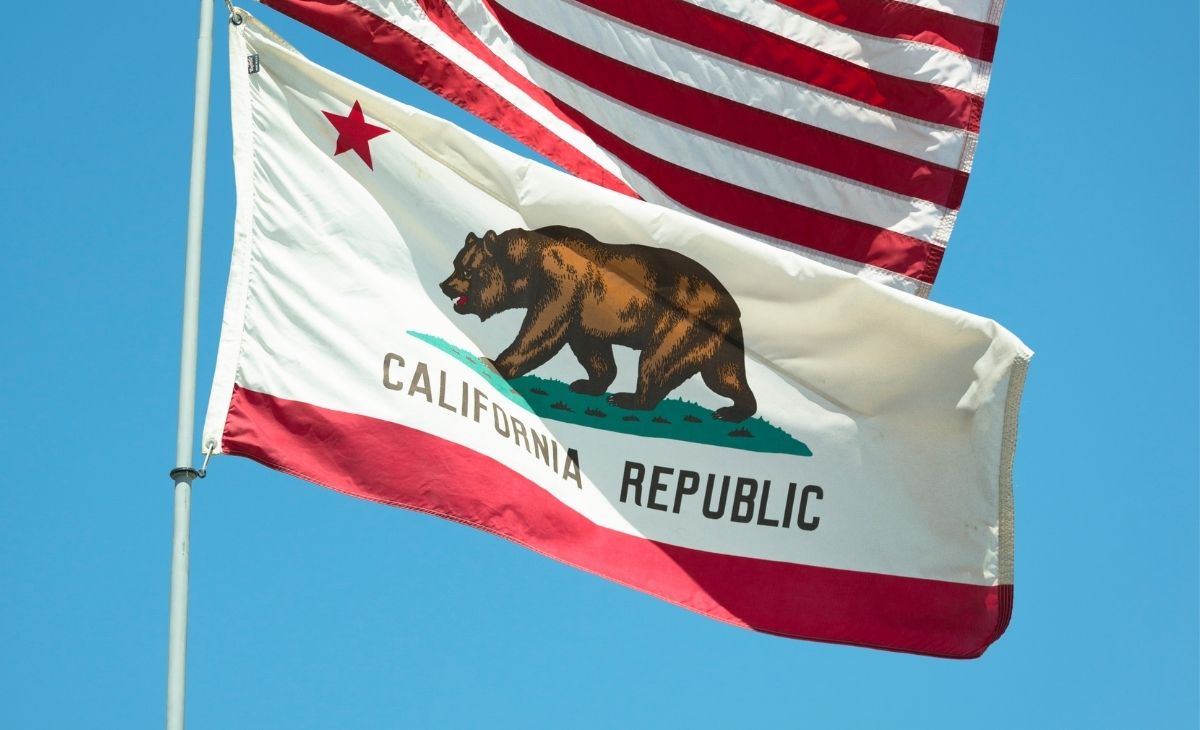
Just like that, we’ve reached the end of the 2021 legislative session. It was a challenging year for legislators and advocates crafting the laws that shape our society; with an ongoing pandemic and a recall election, dozens of consequential bills hit the Governor’s desk to be signed into law. While lawmakers took on the task to introduce these monumental bills, it was Governor Newsom who held the fate of California’s critical legislation efforts in his hands—either enacting or vetoing legislation that will impact lives across the state for years to come. Read on to learn which bills got the Governor’s signature of approval, which bills didn’t, and what that means for Californians and our movement for economic justice.
Which Housing Bills Became Law?
Rental Registry (AB 1188)
What was the intent of this bill?
TechEquity’s sponsored bill, carried by Assemblymember Buffy Wicks, aimed to fix a critical problem with housing data. Right now, in California, there is no way to track crucial data like the number of evictions, illegal rent hikes, and violation of tenant rights. We sponsored the Rental Registry to create better accountability and transparency in our rental housing system and provide the information necessary to design better policies that could accurately address the housing crisis.
Did it become California law?
❌ AB 1188
After passing the Assembly Committee on Housing & Community Development, AB 1188 was held in suspense in Assembly Appropriations and never received a hearing.
What does this mean for everyday Californians?
The truth is, nobody knows the scale and extent to which people in California are at risk of an eviction or rent increase. Without understanding the problem, we can’t build the right solution. That is why we have to continue the push for a statewide rental registry. By establishing a rental registry, policymakers can begin creating smart policy initiatives with reliable data to help better protect and support tenants while providing a concrete scope of what issues renters face.
Building Opportunities for All (Senate Housing Package)
What was the intent of these bills?
The Senate housing package—Building Opportunities for All— included six bills that took a multifaceted approach to address the housing crisis. The Senate package focused on the production of housing and was created with the intent to target barriers to housing development by fixing exclusionary zoning, regulatory barriers, and anemic public investment.
Did they become California law?
❌ SB 5 – Senate Housing Bond
After passing the Senate Rules Committee, SB 5 was never scheduled for a hearing in Senate Committees on Housing or Government & Finance and died on April 30, 2021.
❌ SB 6 – The Neighborhood Homes Act
After approval in the Senate, SB 6 died in the Assembly Committee on Housing and Community Development on August 27, 2021.
✅ SB 7 – The Housing + Jobs Expansion and Extension Act
As of May 20th, 2021, SB 7 has been approved by the California Governor and signed into law.
✅ SB 8 – The Housing Crisis Act of 2019 Extension
As of September 16, 2021, SB 7 has been approved by the California Governor and signed into law.
✅ SB 9 – California Housing Opportunity & More Efficiency (HOME) Act
As of September 16, 2021, SB 7 has been approved by the California Governor and signed into law.
✅ SB 10 – Transit Rich Housing
As of September 16, 2021, SB 7 has been approved by the California Governor and signed into law.
What does this mean for everyday Californians?
If all goes well, these laws will speed up housing production across the state. For example, now eligible homeowners and developers can more easily create duplexes and lot splits in single-family residential zones.
Over time, these bills will reduce over-zoning laws that contribute to the growing gap in affordable housing units across the state. The passage of the Senate Housing Package will make it easier for cities to increase housing production across the state and forge a path forward in the fight to combat the ongoing housing crisis.
Protecting Tenants (AB 15 & AB 16)
What was the intent of these bills?
With a looming eviction cliff caused by the pandemic, AB 15 and AB 16 were proposed to expand protections for renters struggling to pay rent and at high risk of eviction. Both bills aimed to extend the eviction moratorium and help renters and landlords who needed rental assistance get the financial support they needed.
Did they become California law?
❌ AB 15
In late January 2021, Governor Newsom extended eviction protections with the signage of SB 91; AB 15 consequently did not advance in the legislature.
❌ AB 16
In late January 2021, Governor Newsom extended eviction protections with the signage of SB 91; AB 16 consequently did not advance in the legislature.
What does this mean for everyday Californians?
Both bills did not pass because SB 91, the Tenant Relief Act, was signed into law on January 29, 2021. The Tenant Relief Act extended the eviction moratorium to June 30, 2021, giving tenants some reprieve during that time. SB 91 also established the Emergency Rental Assistance Program, providing eligible families and individuals with the financial assistance needed to avoid being evicted for non-payment. While the moratorium has unfortunately ended, eligible Californians can still apply for COVID-19 rental relief here.
Which Workforce & Labor Bills Became Law?
Silenced No More Act (SB 331)
What was the intent of this bill?
SB 331 was brought to the spotlight by former Pinterest employees Ifeoma Ozoma and Aerica Shimizu Banks, who experienced racial discrimination in their workplace and broke their NDAs, speaking out at their own risk. Non-disparagement clauses within NDAs foster a toxic environment for both employees and contractors, making it virtually impossible for employees to hold their companies accountable for workplace discrimination. Authored by Senator Connie Levya (D-Chino) and co-sponsored by Ifeoma Ozoma, this bill ensures that those who experience discrimination in the workplace retain the right to publicly disclose and speak about their experiences without violating their NDAs.
Did it become California law?
✅ SB 331
As of August 30, 2021, SB 331 has been approved by the California Governor and signed into law.
What does this mean for everyday Californians?
Previously, employees who have signed NDAs were only protected to speak out against sex discrimination. SB 331 expands the types of discrimination protected against non-disparagement clauses within NDAs to include other protected classes such as race, sexual identity, and ability. Now, this law ensures that everyone can speak out on all kinds of discrimination or harassment they’ve experienced. This paves the way for workers to publicly hold their workplaces accountable and incentivize companies to enact better corporate policies against discrimination and harassment. The impact of this law will extend past California’s borders, serving as a precedent for other states and companies to change their NDA policies for the better.
Broadband Access for All (SB 4 & AB 14)
What was the intent of these bills?
Now more than ever, access to the internet is crucial for Californians to work from home, attend the virtual classroom, and participate in the 21st-century economy. SB 4 and AB 14 would ensure that we have the funding to provide rural and urban communities with upgraded technology and a reliable network. In addition, the Broadband for All bills package could help parts of the state who are currently underserved get critical access to funding that can upgrade infrastructure to provide higher broadband speeds.
Did they become California law?
✅ AB 14
As of October 8, 2021, AB 14 has been approved by the California Governor and signed into law.
✅ SB 4
As of October 8, 2021, SB 4 has been approved by the California Governor and signed into law.
What does this mean for everyday Californians?
The Broadband for All package enables localities to deliver 21st-century infrastructure for low-income and rural neighborhoods that lack broadband access. This opens digital pathways for underserved Californians to pursue remote education or work from home. In our opinion, broadband access has become a functional necessity of life and we’re glad that California is treating it as such.
Paid Family Leave (AB 123)
What was the intent of this bill?
The pandemic emphasized the challenge low-income workers face when they have to take a leave of absence from work to take care of their loved ones or themselves. In 2021, Assembly Member Lorena Gonzalez (D-San Diego) introduced AB 123 to support workers by increasing the current wage cap on Paid Family Leave so families receive the necessary support during these unprecedented times.
Did it become California law?
❌ AB 123
As of September 28, 2021, AB 123 has been vetoed by the California Governor.
What does this mean for everyday Californians?
AB 123 did not pass this year. However, legislation like AB 123 highlights the ongoing importance of providing necessary benefits and pay to Californians that need to support their loved ones.
How does TechEquity choose priority legislation?
Every year legislators introduce hundreds of bills. To ensure effective, impactful advocacy, we sifted through hundreds of bills to select a slate of policies that aligns with our mission in building an equitable tech-driven economy that works for everyone. We call these bills “priority legislation”.
Together with our members and advisors, TechEquity introduced a bold policy agenda to address economic inequality in the housing market and on the job. With your help, we took on some big fights by proposing a statewide rental registry, advocating for protections against workplace discrimination, and protecting vulnerable populations through affordable housing initiatives.
What now?
We’ve had some key wins and losses this year, but it’s not over till it’s over. We’re ramping up for our biggest legislative year yet in 2022. Sign up here to get the latest on our legislative slate and advocacy efforts.


